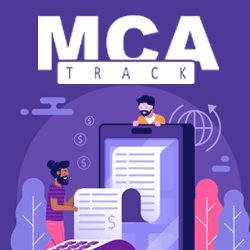Results 26 to 50 of 57
-
08-21-2018, 02:56 PM #26Karen37aGuest
Here just in case you do not see the other thread
China Locks Down Financial District As P2P Lending Implodes
https://www.pymnts.com/news/internat...ending-losses/
Collapse of Chinese peer-to-peer lenders sparks investor flight ( all the negativity cause people to flee, ive said it 100 times, like shorting a stock or placing a rumor...which is illegal)
-
08-21-2018, 06:25 PM #27jotucker1983Guest
See this thread here.
There's far too many cases of merchants being put out of business or running into cash flow issues, when the 4 - 6 advance stacks that they have equate to 40% or more of their monthly gross sales going to payback cash advances.
A case-by-base 2nd position stack in and of itself can be questionable, but it can usually work depending upon all of the circumstances at play such as cashflow, sales, the fact that the 1st position funder didn't provide as high of an approval as they could have, etc.
But there's absolutely no reason why a merchant should have 4 - 7 advances stacked on top of one another. The only reason this is happening is because as I mentioned here, the industry is based on leveraged resources and the brokers fighting at the bottom are fighting for scraps to pay their monthly expenses. As a result, they just stack and stack merchants who otherwise have no CLUE what they are doing. The merchants are very unsophisticated.
And those funders will be banned going forward as a result. Right now as a broker, when you fund a deal, all you can do is pray to the powers that be that you get paid. You might get paid, you might not get paid. There's no centralized police nor regulation that is there to make sure you get paid. Thankfully, the vast majority of the time, we get paid....but it's the fact of the matter that if we don't get paid, there's really no good recourse for the smaller shop.
We would have to get together to determine what "fair" pricing looks like for A, B, C, D, and E Paper. Either we can do it together as an industry, or you can have the U.S. Government do it, which one do you prefer?
On the flip side, I'm not sure how anyone can justify a merchant paying a 1.50 over a 5 month term with the broker getting 10 points on the deal, then adding another 10 points in a PSF fee. That's not "special sales ability", that's taking advantage of an unsophisticated merchant that's desperate for funding.
So I have no intentions of being a jerk when I state this lol, but I feel that those who are fighting so hard against these "basic/common sense" forms of policing, are the ones that these "basic/common sense" forms of policing would begin to police.
You made the statement of: "Well John, you only want regulation because that would make it easier for you to generate business," and the statement alone is revealing because it's almost like you are saying that by doing RIGHT by the client, a broker can't generate business? It's almost like you are saying that business can only be generated when:
- A broker has a recent criminal history
- A broker adds 10 points in a PSF on the side, most of the time without the merchant really understanding what they are paying
- A broker stacks the living hell out of a merchant and nearly drives him out of business
- A broker rips off a co-broker that sent me a deal by not paying him his share of commission
- A broker rips off a funder by getting them to fund a merchant he already knew was shady
Surely this industry can still exist and make money without these practices taking place, right?Last edited by jotucker1983; 08-21-2018 at 06:28 PM.
-
08-21-2018, 06:52 PM #28Karen37aGuest
jibberish
Commission are negotiated thru employment contracts, each individual person has the right to negotiate more favourable terms for themselves based on their ability, just like someone is an entry-level employee for min wage vs a cfo making 250k a year with stock options.
Most states consider people "at will" and depending on the circumstances you will be owed commission after termination, most likely you will not.
Renewals are not due or owing to the isos or brokers as you relinquish your rights to the Funder once you turn over the sale and have non compete agreements and tortious interference agreements in place.
No one has to sign on or do business with anyone they do not want to, that would be like trying to force Microsoft to hire you as a salesperson.
Brokers became very spoiled in this industry and they thought and think because they create an LLC they are entitled to something. You are not.
If the Funders are so bad ...sign on to the ONE Funder that you love and only send them business or get hired internally.
The only way you can negotiate more favourable contracts is to come to the table with more skill and ability and that is PRODUCTION based. Not Time served.
These rules and contacts have always been the same in regulated environments ...stocks, insurance, loans etc or just non regulated sales
Ps This is why you do not let non sales people get bigger than their britches you create a nightmare ...only solution would be to knock them down to almost no commission ..not the top producersLast edited by Karen37a; 08-21-2018 at 07:01 PM.
-
08-21-2018, 07:28 PM #29Senior Member











 Reputation points: 503040
Reputation points: 503040
- Join Date
- Oct 2016
- Posts
- 4,318
Somewhere in the financing food chain is a senior debt lender (a bank) that feels that every single merchant advance (even 1st position A paper) is questionable and will no doubt hurt cash flow. To them, there is absolutely no good reason the business should resort to a cash advance, as it puts its own lending facility at risk.
So why the arbitrary line at 1-2 advances? And why at a percentage of revenue (as each companyís margins are different)?
-
08-21-2018, 07:40 PM #30Karen37aGuest
And credit cards etc ( and people get 1st 2nd position home loans...commercial properties...seconds and credit lines)
__
And the reality is regulators would pay more money to get laws passed that we are worth...also the regulatory costs to oversee us. I can't see them footing the bill we are too small
And if you regulate us you are regulating Factoring as well? And Equipment loans?
This is like regulating plastic straws
I am tired of the desperate attempt
-
08-21-2018, 08:21 PM #31jotucker1983Guest
I would argue that the bank is correct in feeling how they feel. This industry used to be based on purchasing future credit card receivables without a fixed payment associated with the payback period. We morphed into a fixed payment arrangement, which is fine, but that fixed payment arrangement should be structured in a way that allows a merchant enough "breathing room" to not potentially negatively effect him in paying other due expenses of his business.
Let's break this down:
- Merchant is doing $1 million a year in gross sales ($83,000 a month in sales) with a risk profile that puts them at A or B Paper
- Merchant is approved for $75,000 on a 15 month term with a cost factor of 1.30. Fixed payment comes out to 315 business day payments of $310 over the 15 months.
- This represents $6,510 per month in payments coming out that's going towards paying back the program, or about 8% of the $83,000 monthly gross sales.
- To the bank's point, this merchant can still default with this, but a majority chunk of merchants in this situation should have enough breathing room to where the program can be managed and paid back on time (in reasonable fashion).
- Now, when you stack the following advances below, things change:
* 2nd Position: $25,000 at 1.35 over 5 months, which is 105 business day payments of $321 ($6,741 per month in payments)
* 3rd Position: $20,000 at 1.45 over 5 months, which is 105 business day payments of $276 ($5,796 per month in payments)
* 4th Position: $15,000 at 1.45 over 4 months, which is 84 business day payments of $259 ($5,439 per month in payments)
The additional stacks have now added $17,976 in monthly payments, which combined with the 1st position of $6,510 this merchant is now paying about $24,500 per month in advance payments, which represents 30% of his monthly gross sales.
So 30% of his monthly gross sales are going to pay advances. That's not a lot of breathing room and this merchant is dangerously close to getting into bankruptcy territory.
This merchant clearly was unsophisticated both personally and business wise, but instead of our industry stopping this merchant in his tracks (telling him NO, no more funding, you can't afford it), we instead continued to feed him more "drugs" at his long term disposal and at our short term benefit.Last edited by jotucker1983; 08-21-2018 at 08:23 PM.
-
08-21-2018, 08:23 PM #32Karen37aGuest
West coast
this seriously is horrible never ending
-
08-21-2018, 09:03 PM #33Senior Member











 Reputation points: 503040
Reputation points: 503040
- Join Date
- Oct 2016
- Posts
- 4,318
Literally none of this matters if we donít know their margins. Either thereís enough there to debt service or there isnít. Not to mention the margins for a consulting company is going to be much different than a restaurant?
So again Iím asking, what percentage of gross sales are you saying is too much? Provide a number. 10%? 20%? 40%?
Then, how do you write that into law?
-
08-21-2018, 10:01 PM #34jotucker1983Guest
In relation to margins, a couple of points:
- The majority of MCA related fundings do not require the submission of financial statements, nor tax returns, nor a current debt schedule. Those are usually required when the funding gets over $100,000 to $250,000 or if you are submitting to a A+ Paper Funder/Lender.
- Based on this, isn't it reasonable to assume that right now, we really don't know much about the margins of the majority of merchants being funded?
- In addition, there's a reason why the standard 1st position approval is usually no more than 10% to 15% of the annual sales volume. It's baking in the ability of the merchant to reasonably payback the MCA related product and service their other liabilites. If the merchant's other liabilities were never taken into play, why not just approve a merchant for 50% to 75% of their annual gross sales? So a business doing $1 million a year in funding gets $500,000 to $750,000?
- If it were based solely up to me, I would put the absolute max at 20% across the board.
- When a merchant takes out one of these programs, there would be a required filing (other than a UCC) that takes place within a centralized database that is only accessible by regulators and licensed lenders/funders.
- This database would be checked upon application submission and if a licensed lender/funder is caught exceeding the limit, they can be fined or have their licensed revoked.
At the end of the day, the "alternative" nature of this industry is rapidly consolidating with the "conventional" side of lending. We are going to get higher forms of regulation anyway, the best thing to do is acknowledge this and try to help write the policy.
-
08-21-2018, 10:06 PM #35Karen37aGuest
If this person wanted to go find merchants who could fit his "20%" mold he could make an attempt to do so but he cant, so this is all sour grapes.
I think I have a merchant with one funder on these boards 1st position 10%...other is 15%
another funder on these boards 12 % 15 and 22
another 20% and renewed at 20 % larger dollar amount on renewal and they are coming up again for renewal and doubled rev again
suck it up...no excuses...it will be 1-2 million rolling over in renewals
I had people over 30%...someone took a shot on them to SAVE them( and I had to put my tap shoes on to get it done)....they all survived and are doing well. If they never got the money who knows what would have happened... those people are now at 10-12Last edited by Karen37a; 08-21-2018 at 11:29 PM.
-
08-21-2018, 10:49 PM #36Senior Member











 Reputation points: 99426
Reputation points: 99426
- Join Date
- Sep 2012
- Location
- New York, NY
- Posts
- 1,780
Percentage of gross sales is only one part of the equation. Average daily balance is a more useful indicator in determining a merchant's ability to afford an advance. What good is giving an advance where monthly debt service is 15% of gross sales if he only shows an average daily balance of $100 and has 1 or 2 NSFs per month? He clearly can't afford the advance. Conversely, I've seen merchants easily handle payments that eat up 30% of monthly gross because his average daily balances are very high. Each merchant's situation is different. Some merchants are financially astute and responsible. Some are one bad month away from insolvency. Therefore, there are no cookie cutter, one size fits all underwriting rules.
Good underwriters take a holistic approach and look at the whole picture when deciding the maximum approval amount. The 15% rule is only a guideline based on historical performance of similar merchants in a funder's portfolio, not a hard and fast rule. It is also a rule that helps impose discipline on the underwriting process and mitigate the funder's default risk. The broker's job is to ask the right questions, learn the actual profit margins, find out if the merchant can really afford the advance and then guide him to the best solution for his situation.Last edited by MCNetwork; 08-22-2018 at 07:38 AM.
-
08-21-2018, 10:57 PM #37Karen37aGuest
Are you going to lobby for this? Turn this into a law?
You might be too young to remember school house rock ( again i memorize everything)
Singing...Well Im just a bill, yes Im only a bill and Im sitting here on capital hill , well now im stuck in the white house where i am waiting on line with all the other bills for the President to sign and if he signs me then ill be a Law oh yea I hope and I pray that he will but today I am only a Bill
https://www.youtube.com/watch?v=tyeJ55o3El0Last edited by Karen37a; 08-21-2018 at 11:04 PM.
-
08-22-2018, 07:44 PM #38jotucker1983Guest
Excellent post, underwriting includes a variety of aspects such as credit scoring, bank balances, current liens, if the client is behind on their rent, etc., but I want to highlight something you said here:
The 15% rule is only a guideline based on historical performance of similar merchants in a funder's portfolio, not a hard and fast rule. It is also a rule that helps impose discipline on the underwriting process and mitigate the funder's default risk.
My argument is that default risk is why 10% to 15% of annual gross sales (and 15% is pushing it, it's usually 5% to 8%) is usually the amount approved. It factors in the ability of giving the merchant enough "room" to cover other required operational expenses, as the goal of the 1st position funder is not to just lend out....but get the money back that they lent out.
I just feel sorry for the 1st position funder that is stacked with up to 6 positions on top of its program, with the client having to make other arrangements to finish the payment cycle.
Stacking is how a lot of the broker shops today are staying alive, let's just be honest about that. But the reality is that you can't survive on that alone because despite what anybody thinks....more regulation is coming to this space based on the media attention provided along with the consolidation of the alternative players with the conventional platforms. The space is no longer competing with the banks, it's mainly working alongside them now.Last edited by jotucker1983; 08-22-2018 at 07:46 PM.
-
08-22-2018, 07:58 PM #39Senior Member











 Reputation points: 503040
Reputation points: 503040
- Join Date
- Oct 2016
- Posts
- 4,318
-
08-22-2018, 08:14 PM #40jotucker1983Guest
Got it, but the only difference is that the conventional loans like the SBA programs are at conventional terms. We are talking less than 10% in interest with terms that are 5 years to 10 years. We are also talking about an approval amount that's of reasonable means and a payment schedule of very reasonable means.
So a 1st position A/B funder going in there with that SBA loan already in place for example, still gives the merchant a lot of breathing room, despite the fact that the payback cycle is 6 to 15 months give or take.
But when you throw 6 positions on top of that, with terms from 4 to 7 months each, that is where we start to potentially get into trouble here.
-
08-22-2018, 08:17 PM #41Karen37aGuest
***rolling eyes ***
-
08-22-2018, 08:34 PM #42Karen37aGuest
https://dailyfunder.com/showthread.p...ighlight=fruit
There will always be new people going into business and guess what, there will be a time when they are no longer new and they need a loan for whatever reason. Then they will die and their grand kids will need a loan for whatever reason, or the people their greedy grand-kids sold the business off too will need one.
And then their were Renewals.....
PS Yogi Berra also said .......This is like deja vu all over again
Thats from 2015 I think.These same convos have been going on for years. I am sure you can look up my "low hanging fruit" reponses to some.
Me telling them that they are getting bad clients because they cant sell...they can only get to the fruit they( and everyone else) can reach and that they need to improve their sales skills so they do not have this low grade stacked to death paper
-
08-22-2018, 08:52 PM #43Karen37aGuest
The 2015 years ....lets all reminisce...same stories just another time and another place..new faces new names...some are still saying the same things
People who think negatively will never make sales. Was it Yogi Berra who said , baseball in 90% mental?? Its like stepping up to the plate thinking..im going to strike out, im going to strike out . I am not the motivational coach here but I know this if you think you can you can, if you think you cant you cant.
Some of you are like the Glengarry Glen ross movie...the leads are coming !! the leads are coming !!!
Now I am here yelling ...PUT THAT COFFEE DOWN COFFEE IS FOR CLOSERS!!!! ...karen
.And .for those that recall the bs yulia years, an oldie but a goodie....the fantastic leads that closed themselves
https://dailyfunder.com/showthread.p...ighlight=fruit
Pt Barnum allegedly said " Theres a sucker born every minute "
meaning ...people are fools and there always will be fools.
I have ex mortgage brokers/ex sleezy sales agents going out in a body bag weekly..cant handle the pressure of this industry.
I know for every 10 agents I hire..4 are going into the witness protection program , never to be heard from again..day one.Scared to pick up the phone.
Who said the sales people/brokers are going to be replaced?? They are going to automate the system???
I cant wait untill someone has a big warehourse in the desert and everyone gets online and takes a ticket, like in the bakery, to sign themselves up for a cash advance loan LOL
Anytime anyone says something like that to me or has far fetched ideas i know...this guy cant sell. Pfft
Sales people need to Pick up the phone
get those special UCC lists and dial lol
Im singing from the wizard of oz...If I only had a brain da da da da da da
karenLast edited by Karen37a; 08-22-2018 at 08:56 PM.
-
08-23-2018, 08:19 AM #44
The full quote from Yogi is: "Baseball is ninety percent mental. The other half is physical." Math never was his strong suit.
-
08-23-2018, 08:24 AM #45Karen37aGuest
-
08-23-2018, 09:32 AM #46Member

 Reputation points: 56
Reputation points: 56
- Join Date
- Oct 2017
- Posts
- 46
Docusign
I've kind of come across this issue and I can totally see how it can happen. We had an offer out, ISO called in and asked us to change the e-mail address on record and send him docusign. Docs come back and the merchant admantly says that he did not sign the contracts and that e-mail is not his. I mean, anyone can catch this with a simple merchant interview. But if funders / brokers want to be shady, they could easily create an e-mail address for the merchant, complete the docusign for the merchant and fund a deal without a merchant interview.
Gotta love this industry.
-
08-23-2018, 10:26 AM #47
Pablo Escobar
 Patrick Wilson
Patrick Wilson
Managing Partner
www.PremierCapitalNetwork.com
(NO MORE LENDER/FUNDER CALL PLZ)
-
08-23-2018, 10:31 AM #48Karen37aGuest
thats why i do not use it...paper contract in my hand...back it goes
on the few companies that I trust...a few made me use it( i trust them 100% now)..i double chcked the emails so my brokers /iso cant pull a shifty move on me...one tried...that was a fun day at the office
-
08-23-2018, 01:06 PM #49jotucker1983Guest
It's a Wild Wild West lol. It's these sorts of things that basic and common sense regulation could help ward off. In addition, agents caught doing this right now can be prosecuted heavily. But of course when a large chunk of the industry refuses to do upfront background/character checks on the people they are recruiting.....crooks, criminals, thugs, liars, and cheaters easily slide in the door and the people that are harmed the most are the merchants we are supposed to be setup to serve.
-
08-23-2018, 01:11 PM #50Karen37aGuest
in a ver very very small way I am glad people get to experience what some did to me for 3 years because they can't make sales.
and birds of a feather
Similar Threads
-
Anyone ever heard of TMI?
By Lender Of Gold in forum Merchant Cash AdvanceReplies: 2Last Post: 10-17-2017, 06:45 PM -
OMG Have you heard the news?!
By Lmonus in forum PromotionsReplies: 1Last Post: 05-08-2017, 04:37 PM -
Anyone heard of CFPI?
By Lender Of Gold in forum Merchant Cash AdvanceReplies: 5Last Post: 04-21-2017, 01:25 PM -
Has anyone heard of this...........?
By 1StopFunding in forum Merchant Cash AdvanceReplies: 7Last Post: 07-31-2014, 02:03 PM -
Anyone heard of....
By ERS in forum Merchant Cash AdvanceReplies: 0Last Post: 07-26-2014, 05:59 AM



 Reply With Quote
Reply With Quote

















